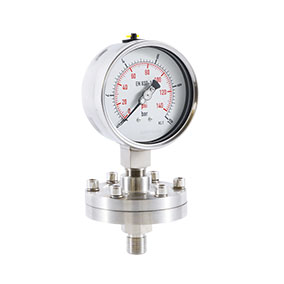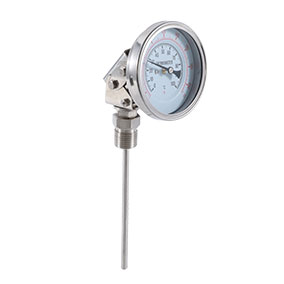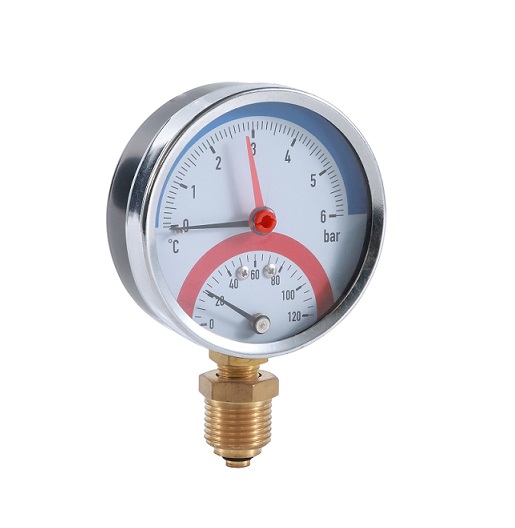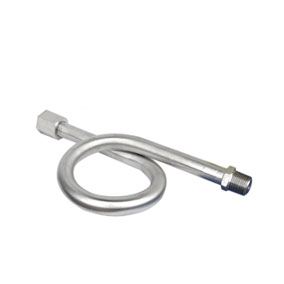Principles of different types of industrial thermometers
Temperature is a key parameter in many industrial processes, and accurate temperature measurement is essential to ensure product quality, improve production efficiency, and ensure equipment safety. Industrial thermometers are widely used in various fields, such as chemical, metallurgical, food, pharmaceutical and other industries. Different types of thermometers have different advantages, disadvantages and scopes of application according to their respective working principles. This article will introduce the principles of several common industrial thermometers and explore their applications in actual industry.
1. Liquid expansion thermometer:
Liquid expansion thermometer is one of the most common temperature measurement tools and is widely used in daily life and industry. Its basic principle is to use the characteristics of liquid (such as water, alcohol, mercury, etc.) to expand or contract when the temperature changes. The liquid in the thermometer is filled in a closed glass tube. When the temperature rises, the liquid expands, and vice versa. The expansion or contraction changes of the liquid are displayed by the scale lines on the dial to show the temperature change. Liquid expansion thermometers are suitable for low to medium temperature ranges and are very sensitive to changes in the environment.
2. Gas expansion thermometer:
The working principle of gas thermometer is similar to that of liquid expansion thermometer, except that it uses the change in volume of gas under temperature change to measure temperature. When the temperature of gas changes, its volume will also change accordingly. Usually, gas expansion thermometer uses a closed pipe system, and the gas transmits temperature change through a certain pressure. This thermometer is often used for high temperature measurement, especially under high pressure environment, and is more accurate than liquid expansion thermometer.
3. Bimetallic thermometer:
Bimetallic thermometer is composed of two different metal sheets, and the two metals have different thermal expansion coefficients. When the temperature changes, the expansion degree of the metal sheet is different, causing it to bend or deform. The bimetallic thermometer uses the degree of bending of the metal sheet to indicate the change in temperature. This thermometer has the advantages of simple structure and easy use. It is suitable for general industrial environments, especially in occasions with large temperature fluctuations.
4. Thermocouple thermometer:
Thermocouple thermometer works based on the principle of thermoelectric effect. It consists of a junction formed by the contact of two metal wires of different materials. When the temperature at the junction changes, an electromotive force (voltage) is generated, and the magnitude of the electromotive force is proportional to the temperature change. By measuring this electromotive force, the temperature value can be obtained. Thermocouple thermometers are widely used in high-temperature, high-precision industrial environments, especially in metallurgy, aerospace and other industries.
5. Thermal resistance thermometer (RTD):
Thermal resistance thermometer uses the property that the resistance of metal changes with temperature to measure temperature. Commonly used materials include platinum, copper, etc. When the temperature changes, the resistance value changes. By measuring the change in resistance, the change in temperature can be calculated. Thermal resistance thermometers have high accuracy and strong stability. They are widely used in precision measurement and control systems and are suitable for a wide range of applications from low temperature to high temperature.
Different types of industrial thermometers have their own unique working principles and applicable scenarios. When choosing a suitable thermometer, it is necessary to comprehensively consider factors such as temperature range, measurement accuracy, and environmental conditions. By choosing a reasonable thermometer, it is possible to ensure the temperature control accuracy in the production process, improve production efficiency and reduce energy waste. Therefore, a deep understanding of the working principles of various thermometers is essential for optimizing industrial processes. An Hui Exact has different kinds of industrial temperature instruments,We will try our best to serve you and hope to become one of your friends and business partners.




